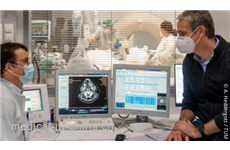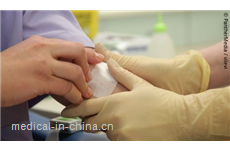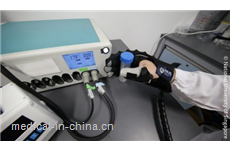
New AI technology protects privacy
AI algorithms can support medical personnel in diagnosing illnesses. However, to train these algorithms, a precious good warranting careful protection must be accessed: medical data. A team of researchers at the Technical University of Munich (TUM) has developed a technology that ensures that patients’ personal data are protected in the training of algorithms.

Microneedle patch delivers antibiotics locally in the skin
MRSA skin infections are often treated with intravenous injection of antibiotics, which can cause significant side effects and promote the development of resistant bacterial strains. To solve these problems, researchers at Karolinska Institutet in Sweden are developing a microneedle patch that delivers antibiotics directly into the affected skin area.

Tissue, scaffold technologies provide new options for breast cancer
New technology from Purdue University innovators may help improve tissue restoration outcomes for people with breast cancer and other diseases or traumatic injuries.

Wearables can detect COVID-19 symptoms and predict diagnosis
Wearable devices can identify COVID-19 cases earlier than traditional diagnostic methods and can help track and improve management of the disease, Mount Sinai researchers report in one of the first studies on the topic. The findings were published in Journal of Medical Internet Research.

Strain sensors that are 10 times more sensitive
A research team from the National University of Singapore (NUS), led by Assistant Professor Chen Po-Yen, has taken the first step towards improving the safety and precision of industrial robotic arms by developing a new range of nanomaterial strain sensors that are 10 times more sensitive when measuring minute movements, compared to existing technology.